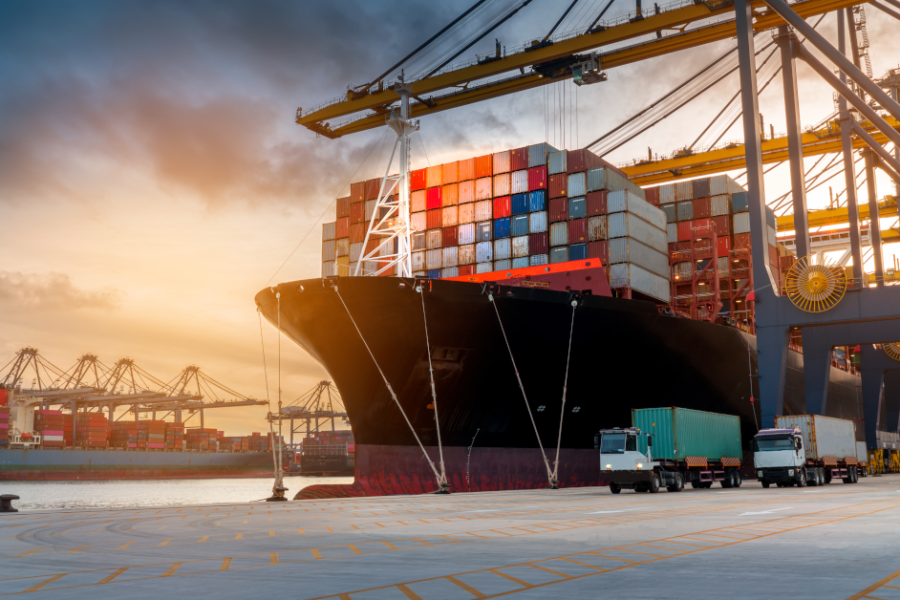Ana Boata, Head of Macroeconomics Research at Euler Hermes recently presented to the trade credit insurance community on the consequences of Brexit.
Boata discussed how Euler Hermes sees Brexit impacting the UK, she split the Brexit deal into 4 key areas:
- Goods – zero tariffs and quotas for qualifying goods, provided the level playing field rules and the rules of original are met.
- Customs Checks – 6-month transition period to UK custom declarations but immediate implementation from 1st January 2021 on the EU side.
- Rules of Origin – goods imported to the UK which undergo processing in the UK need to have less than 45% foreign input to avoid tariffs.
- Financial Services – no passporting rights and an 18-month equivalence for derivatives to allow for agreements, other financial products are under a temporary fix for 6 months.
Zero Tariffs but Burdensome Administration
Although zero tariffs and quotas have been agreed there is a lot of red tape for UK exporters to navigate. A live survey from Euler Hermes during the Webinar asked:
Following the Brexit deal, what do you expect in terms of export competitiveness?
- Moderately higher – 44.10%
- Significantly lower – 32.30%
- Unchanged – 16.40%
- Significantly higher – 7.30%
The majority of respondents had mixed expectations between moderately higher and significantly lower competitiveness. Euler Hermes forecast two scenarios, the first with sterling depreciating by -3% in 2021 which is the baseline scenario and the second with the sterling remaining stable. In both scenarios, export losses per year by GBP/EUR are expected. However, some competitiveness could be achieved if the sterling depreciates with export losses of EUR13.5 billion compared with EUR27.3 billion if the sterling remains stable.
Will Rules of Origin Change Supply Chains?
Industries where the foreign value-added content of gross exports as a percentage of the final product is in excess of 45% will be hit disproportionately. This may lead to changes in the supply chain. These include:
- Wood and cork products
- Electrical equipment
- Fabricated metal products
- Chemicals and pharmaceuticals
- Manufacturing
- Computer, electronic
- Motor vehicles, (semi) trailers
- Machinery and equipment
In response to this Ana Boata asked:
Due to Brexit, which actions have you or are you planning to implement?
- Increase prices due to higher logistical and administrative costs – 39.40%
- Increase stocks in the UK – 26.60%
- Target new customer groups in the UK – 25.50%
- Change suppliers to avoid supply chain disruption – 20.20%
- Digitalize further your production process more to cope with higher labour shortages 16.00%
- Increase exports outside the EU – 14.90%
- Hedge against GBP depreciation – 14.90%
- Relocate production to UK – 6.40%
Most respondents will pass on price increases to customers or the end user due to higher logistical and administrative costs. From previous Euler Hermes’ research at the end of 2020, businesses suggested that they are planning to either look for domestic suppliers or consider a move to continental Europe to remove the risk of tariffs from non-compliance with the rule of origin conditions.
Customs Checks to Impact Margins
When the customs check transition period ends on 1st July 2021 there is an expectation from Euler Hermes that import prices will increase. During the presentation attendees were asked about the effect that the EU-UK free trade agreement will have on margins.
An EU-UK free trade agreement will:
- Moderately decrease your margins – 41.20%
- Moderately increase your margins – 25.90%
- No impact on your margins – 22.90%
- Strongly decrease your margins – 7.10%
- Strongly increase your margins – 2.90%
The effect on margins is likely to depend on how strongly import prices increase and therefore how much input prices increase; this could impact the foreign value-added content of gross exports as a percentage of the final product. Government intervention and the recovery from the pandemic will also impact this.
What Does This Mean For 2021?
The economic forecast from Euler Hermes following Brexit is for a low GDP growth in 2021 of 2.5% (following a contraction of -11% in 2020), with a more buoyant recovery of 7.8% GDP to follow in 2022. However, due to the artificially low insolvency figures in 2020 (see FinCred News), 2021 business insolvencies are forecast to be between 15,000 and 20,000.
Finally, to round off the presentation, Ana Boata asked the audience:
Following Brexit, how could the Government support your company more?
- Stimulate domestic demand – 43.40%
- Reduce local taxes – 26.20%
- Reduce import tariffs – 24.80%
- Support relocation of supply chains – 23.40%
- Pursue green transition – 15.20%
- Increase labour availability – 8.30%
- Increase R&D spending – 7.60%
- Decrease labour costs – 6.20%
- Other – 4.10%
Many respondents see the stimulation of domestic demand as the key to supporting businesses during this ongoing period of uncertainty. This is likely to be of particular importance when the Government support schemes for Covid-19 end.









